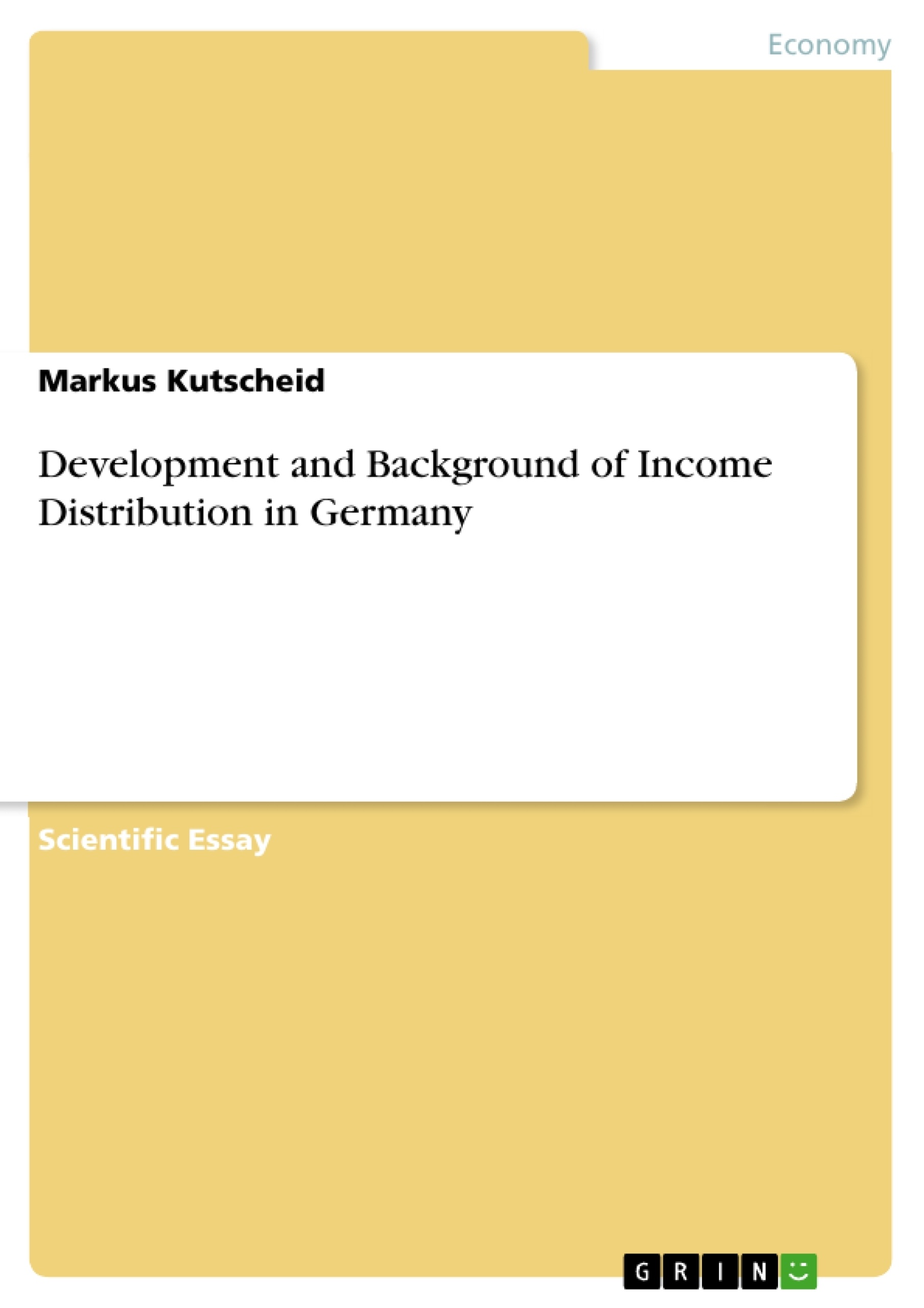The Economist Simon Kuznets Smith, Nobel Laureate in Economics in 1971, examined the empirical relationship between economic growth and inequality in income distribution of an economy. He stated that inequality increases initially during the development of a country and then decreases. The Kuznets curve is a graphical representation of this relationship. Since the 1990s and 2000s, however, the inequality in OECD countries has begun to rise again. This is indeed the case in Germany. The study shows that the reason for this development cannot be traced to any one single factor, for example globalization, but is rather the result of structural factors and tends to occur in the transition from an industrial society to a highly developed services economy. The study will investigate which factors - such as globalization, advances in technology, politics and institutions, the education level and changes in household structures - are responsible for the rise in income inequality in Germany and how strongly each factor influences this rise.
Inhaltsverzeichnis (Table of Contents)
- ABSTRACT
- KEY WORDS
- INTRODUCTION
- MATERIAL AND METHODS
- RESULTS AND DISCUSSION
- The Kuznets Curve
- The Gini Coefficient
- What Is Meant by Income?
Zielsetzung und Themenschwerpunkte (Objectives and Key Themes)
This study investigates the reasons behind the rise in income inequality in Germany, particularly in the context of the renewed increase observed in OECD countries since the 1990s and 2000s. The author aims to determine if the Kuznets curve, which initially predicted a decrease in inequality with economic development, is now experiencing a reversal in developed economies. Specifically, the study examines whether Germany follows this trend and explores the contributing factors to this phenomenon.
- Income inequality in developed economies, particularly Germany, in relation to the Kuznets Curve.
- The role of globalization, technological advancements, politics and institutions, education levels, and household structure changes in influencing income inequality.
- The impact of taxes and transfer payments from the social market economy on income inequality in Germany.
- The relationship between economic growth and income inequality, and the potential for economic damage from significant income disparities.
- The Gini coefficient as a measure of income inequality and its application to various countries.
Zusammenfassung der Kapitel (Chapter Summaries)
- ABSTRACT: This section introduces the study's focus on income inequality in Germany and its relationship to the Kuznets curve. It notes the renewed rise in inequality in OECD countries since the 1990s and 2000s, and highlights the study's exploration of the contributing factors.
- INTRODUCTION: This section discusses the Kuznets Curve and its initial prediction of income inequality decreasing with economic development. The author notes the recent reversal of this trend in developed countries, including the United States, and highlights the growing concern regarding the impact of income inequality on economic stability and social welfare.
- RESULTS AND DISCUSSION: This section delves into the Kuznets Curve and its relationship to income distribution. It introduces the Gini Coefficient as a key measure of income inequality and provides examples of its application across various countries, illustrating the varying degrees of inequality. The section also examines the concept of income and its different sources.
Schlüsselwörter (Keywords)
Key terms and concepts in this study include income inequality, Kuznets Curve, Gini Coefficient, globalization, technological progress, market regulations, labor market trends, demographic changes, and social market economy. The study investigates the impact of these factors on income distribution and examines the role of government policies and social welfare programs in mitigating income inequality in Germany.
Frequently Asked Questions
What is the Kuznets Curve in relation to income distribution?
The Kuznets Curve suggests that as a country develops, income inequality first increases and then decreases. This study examines why this trend is currently reversing in Germany.
How is income inequality measured in this study?
The study primarily uses the Gini Coefficient, a statistical measure of distribution, to compare inequality levels across different countries and time periods.
What are the main factors driving rising inequality in Germany?
Key factors include technological progress, globalization, changes in household structures (e.g., single households), and shifts in labor market institutions.
How does the social market economy influence income distribution?
Taxes and transfer payments in Germany’s social market economy act as a redistributive mechanism that significantly reduces market-based income inequality.
Is income inequality harmful to economic growth?
The study investigates the potential for economic damage when income disparities become too significant, affecting social stability and overall welfare.
- Quote paper
- Markus Kutscheid (Author), 2012, Development and Background of Income Distribution in Germany, Munich, GRIN Verlag, https://www.grin.com/document/207396



